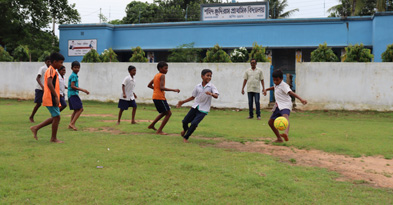Holistic development for all students

Holistic development for all students
Holistic development for all students is a crucial goal in education, aiming to nurture every aspect of a student's growth, not just academically, but also socially, emotionally, physically, and morally. Here are some key principles and strategies to promote holistic development in education:
1. Balanced Curriculum: A well-rounded curriculum that includes not only core academic subjects but also arts, physical education, and life skills is essential. This allows students to explore their interests and develop a wide range of skills.
2. Individualized Learning: Recognizing that each student is unique, personalized learning approaches can be employed to cater to different learning styles and paces, ensuring that no one is left behind.
3. Emotional Intelligence: Incorporating social and emotional learning (SEL) into the curriculum helps students develop self-awareness, self-regulation, empathy, and interpersonal skills, which are critical for emotional well-being and success in life.
4. Extracurricular Activities: Encouraging participation in extracurricular activities such as sports, music, drama, and clubs helps students develop teamwork, leadership, and creativity while promoting physical fitness.
5. Character Education: Promoting values like honesty, respect, responsibility, and compassion helps shape students' character and ethical decision-making.
6. Health and Wellness: Providing access to nutritious meals, physical education, and counseling services supports students' physical and mental well-being.
7. Inclusivity: Creating an inclusive environment that respects and supports students of all abilities, backgrounds, and identities fosters a sense of belonging and equity.
8. Community Engagement: Involving parents, families, and the broader community in the educational process strengthens the support network for students and reinforces the importance of education.
9. Assessment Beyond Grades: Assessment methods should go beyond traditional grades and standardized tests to include portfolio assessment, project-based assessment, and self-assessment, which provide a more comprehensive view of a student's progress.
10. Life Skills: Teaching practical life skills such as financial literacy, problem-solving, critical thinking, and digital literacy equips students with tools they'll need in adulthood.
11. Continuous Professional Development: Ongoing training and development for teachers are essential to ensure they are equipped to foster holistic development in their students.
12. Monitoring and Evaluation: Regular monitoring and assessment of students' holistic development, along with feedback mechanisms, help educators refine their strategies.
The goal of holistic development is to prepare students not only for academic success but also for personal fulfillment, responsible citizenship, and meaningful contributions to society. It recognizes that education is not just about acquiring knowledge but also about becoming well-rounded individuals who can navigate the complexities of the world with confidence and empathy.
